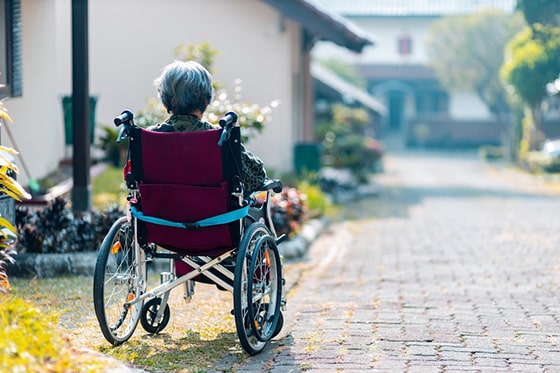September is Alzheimer’s Awareness month. This disease affects half a million Canadians directly and also their families and friends. It can be difficult to watch a loved one suffer from Alzheimers. While it affects many people, more awareness is needed.
What is Alzheimers and how is it different from dementia?
In this video, the difference between Alzheimers and dementia is explained:
What services are available for people with Alzheimers and their families?
The Alzheimer’s Society of Canada has a list of great resources like First Link, a service that connects families with support and referrals. They also have information on MedicaAlert, something that can be helpful to identify and return patients who have wandered off. Their SafelyHome partnership has valuable tips to help in these situations as well as information on how to order a MedicAlert bracelet.
How can you tell if a loved one is struggling?
The Alzheimer’s Society of Canada has a list of ten signs that someone may be impacted by Alzheimers. Watching for these signs can be really helpful to ensure that friends and family get the treatment and attention they need as soon as possible. There is also a difference between dementia and normal aging and that’s important to keep in mind. If you’re wondering how to tell the difference, this is a resource you can consult.
Self-Care for Caregivers
If you have a loved one who has Alzheimers, you may find that their care takes a toll on you. While you naturally want to care for your friend or family member, you also want to make sure that you are taking care of yourself. In the midst of caretaking responsibilities, it’s crucial to make sure that you are getting adequate nutrition, fluids, rest and time for yourself.
Checking in with yourself on how much stress you are really under by reviewing these ten warning signs of stress from the Alzheimer’s Society of Canada. It’s also really key not to feel like you have to do this alone. Ask for help if you need it, from family, friends or your family member’s health care team. Feeling supported can make all the difference during a difficult time and a sense of isolation can have a negative effect on your mental health as a caregiver.
The reality is that caring for aging relatives can come with complicated feelings and that these feelings are completely normal. It is helpful, however, to have someone to talk to about these feelings. Look for a support group in your area or online to connect with other caregivers who are going through the same things you are for peer advice.
Talking to a professional can be a good idea too. Wellin5’s counsellors would be happy to support you as you navigate the realities of caring for an aging relative with Alzheimers, dementia or any other health condition that affects the lives of those around them. Your family member’s needs need to be addressed, but so do yours and you deserve to have people on your team helping you also. Reach out and book an appointment if you need someone to talk to who can give you the advice and support you need.

